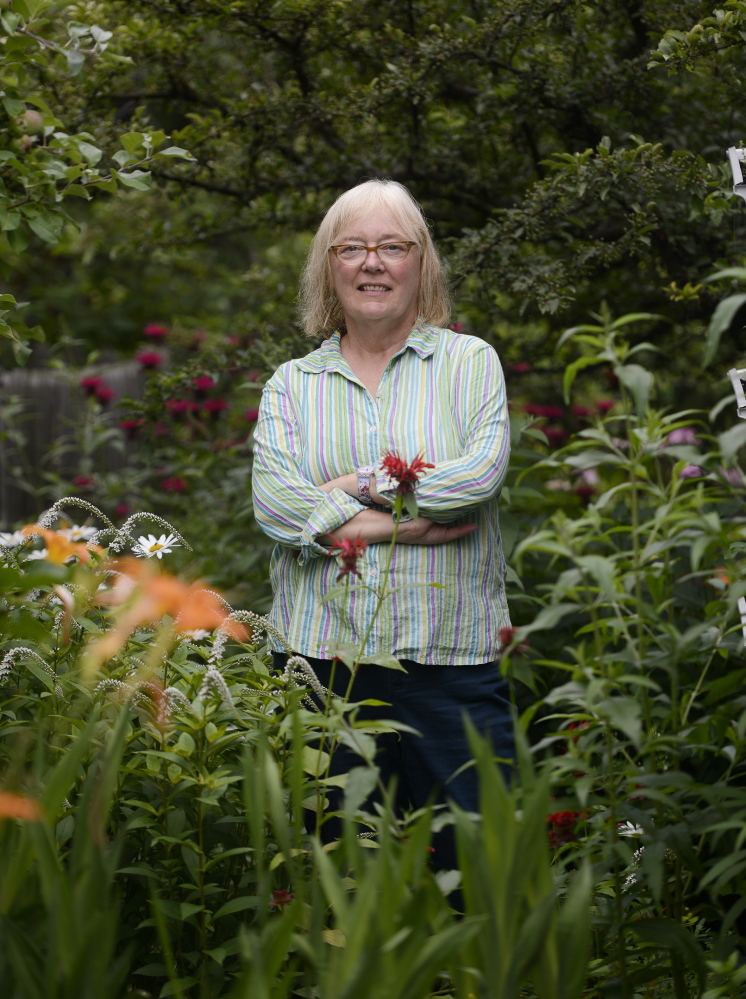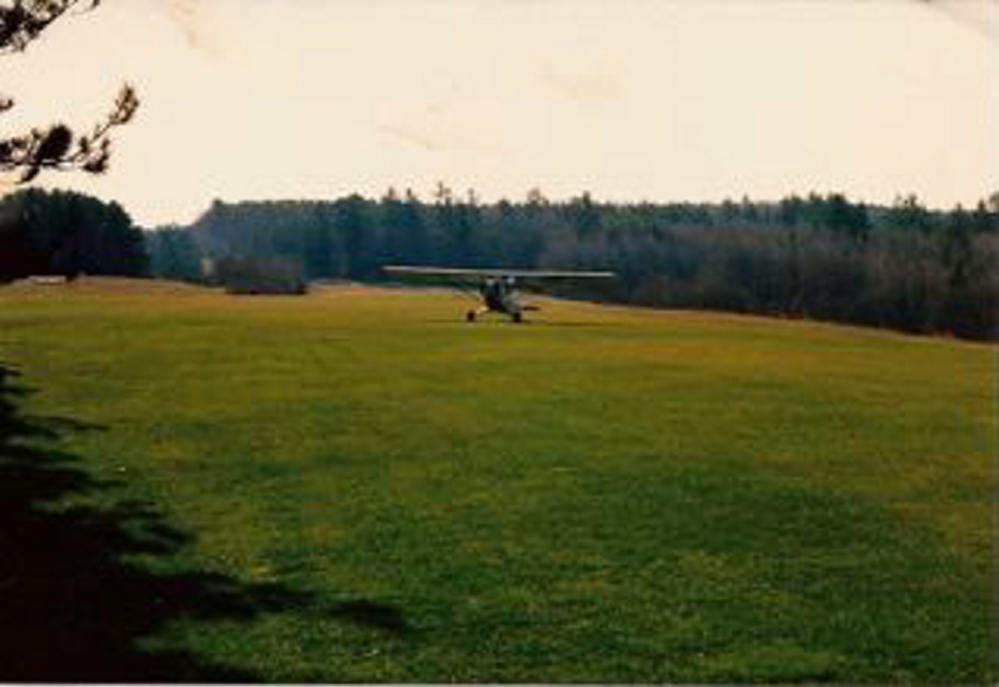Retired science teacher Rosanne Graef considers herself an environmentalist, so when the Sierra Club’s Portland Climate Action Team was looking for land to develop a community-owned solar farm for Portland residents, she thought about the land where she grew up, on the shores of Lake Androscoggin in Wayne.
This past week she spoke about the land and her role in the project at a gathering to seek out potential shareholders for two community solar farms. Each project will take up to 10 shareholders. We called her up to find out what made her willing to roll out the welcome mat.
WAYNE’S WORLD: Graef lives in Portland, but she grew up on the land her father bought in Wayne in 1940. Much of it was and is wooded, but if you climb to the top of a hill called Morrison Heights, she said you get a fantastic view of Lake Androscoggin and beyond. “You can see all the way to Mount Washington,” Graef said.
In the 1960s, there was talk of their land, and that of others nearby, being taken by eminent domain for a state park. “Just about everyone in town, including my parents, was opposed to this idea and it was finally dropped.” She’s an only child, “so I inherited the whole piece of land.”
PROJECT RUNWAY: Some of the original parcel had been sold off before then, including one of the islands in Lake Androscoggin, but she still owns about 95 acres, including a parcel that was particularly important to her father. That would be his two runways. He was a commercial pilot who worked for Northeast Airlines and then Delta, and his vacations were definitely busman’s holidays.
“That was his career and I would say his main interest and hobby.” He flew small planes for fun, including a seaplane that he used to fly up to a log cabin camp at Moosehead in the 1950s and ’60s (he was a big fisherman).
He graded and cleared land to make two runways, essentially parallel, one longer than the other, so he could fly to and from the family home in Wayne. “His route was based out of Boston and he flew to Fort Lauderdale and Miami, but he didn’t care for the city that much. He liked the woods and that kind of thing.”
SOLAR CLUB: A friend invited her to a meeting of the Sierra Club’s Portland Climate Action Team, where the discussion focused on creating a community-supported solar farm. It didn’t have to be in Portland (two projects were proposed, the second of which is still in the discussion phase and would be sited at the former landfill on Portland’s Ocean Avenue.) The point is to get investors to help fund a solar project that feeds into the Central Maine Power grid and leads to discounted electric bills and eventually, none at all (ideally).
Graef thought, why not her land? She’s got friends living in the house, but she and her husband are happily retired in the West End and don’t love the drive to get up to Wayne. And selling it still doesn’t sit right with her. “People are always telling me, you could build roads in there and develop it,” Graef said. “But I am really not that interested in doing that.”
CONSULTATION: With Graef’s blessing, a representative from ReVision Energy went out to look at the land and came back with the opinion that Graef’s father’s old runways would be a good site for a solar farm. Graef reached out to the landowners who are hosting Maine’s first community solar project in South Paris, Russ and Judy Florenz. There, the solar farm is a rooftop installation on an old chicken barn. In Wayne, the panels will be mounted in the ground.
“Because it was made into these runways, it kind of asks to have something done there,” Graef said. (She doesn’t have a pilot’s license or any desire to get one.) “It’s not really suitable for agriculture. I supposed someone could put blueberries or apple trees in there, but this kind of farm seemed better.”
WILD WOODS: The rest of the land will remain wild. “It’s just all woods,” Graef said. “It’s nice. With all sorts of animals, deer and porcupines and unfortunately, ticks.”
LAND LEASE: Graef taught middle school in Bath and has a degree in botany from the University of Maine in Orono. She says if all goes well with this project, which already has a few committed shareholders, she’d lease the second runway as well. Every shareholder makes an upfront investment to cover the equipment, maintenance and insurance on the project. In return, once the project starts generating power, Central Maine Power reduces the power usage on the shareholder’s electric bill by his share of the farm’s output. Graef will be paid for leasing the land.
Will the proceeds fund something special? Say, a Paris apartment? Graef laughed. “Not even an apartment in Portland,” she said. “This is a 25-year lease, and the amount you get for it is nominal.” But it should pay off in good karma.
Send questions/comments to the editors.






Success. Please wait for the page to reload. If the page does not reload within 5 seconds, please refresh the page.
Enter your email and password to access comments.
Hi, to comment on stories you must . This profile is in addition to your subscription and website login.
Already have a commenting profile? .
Invalid username/password.
Please check your email to confirm and complete your registration.
Only subscribers are eligible to post comments. Please subscribe or login first for digital access. Here’s why.
Use the form below to reset your password. When you've submitted your account email, we will send an email with a reset code.